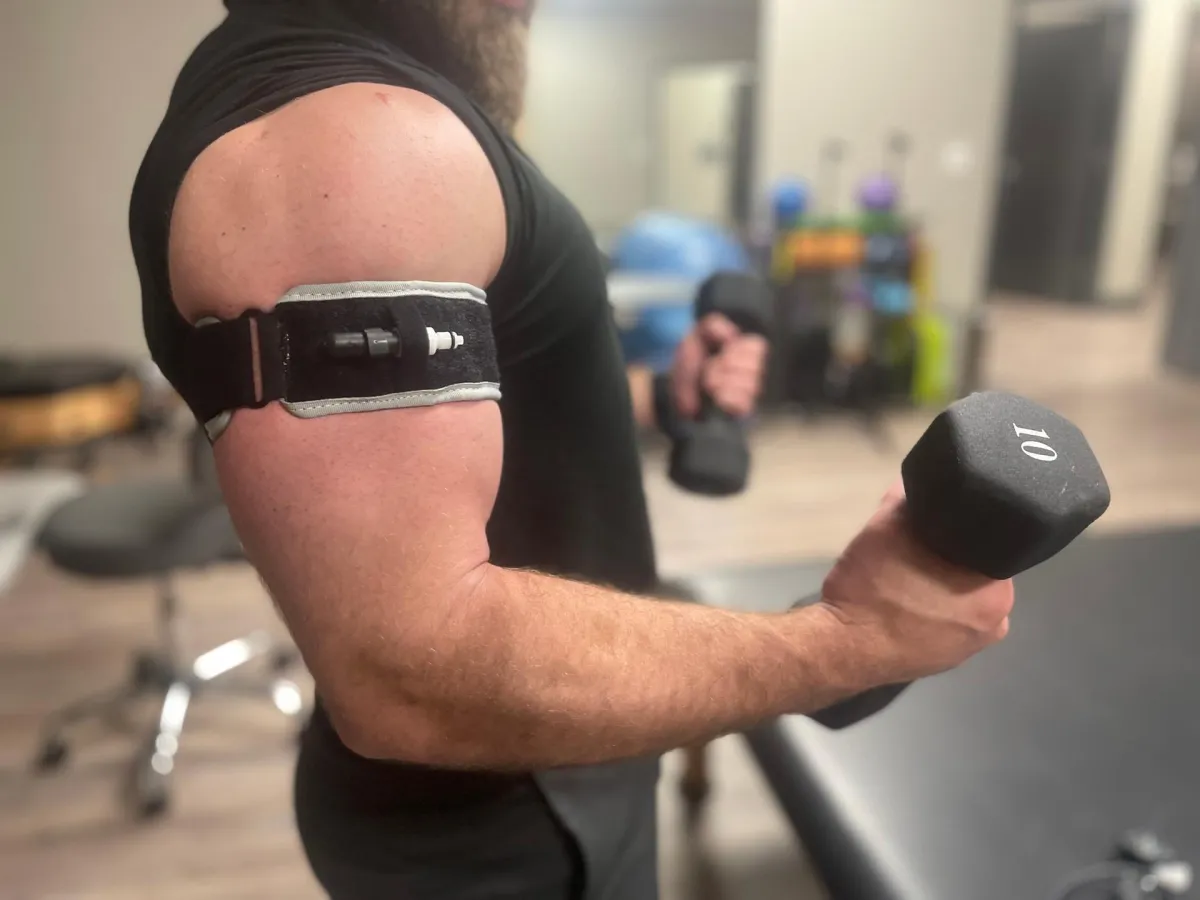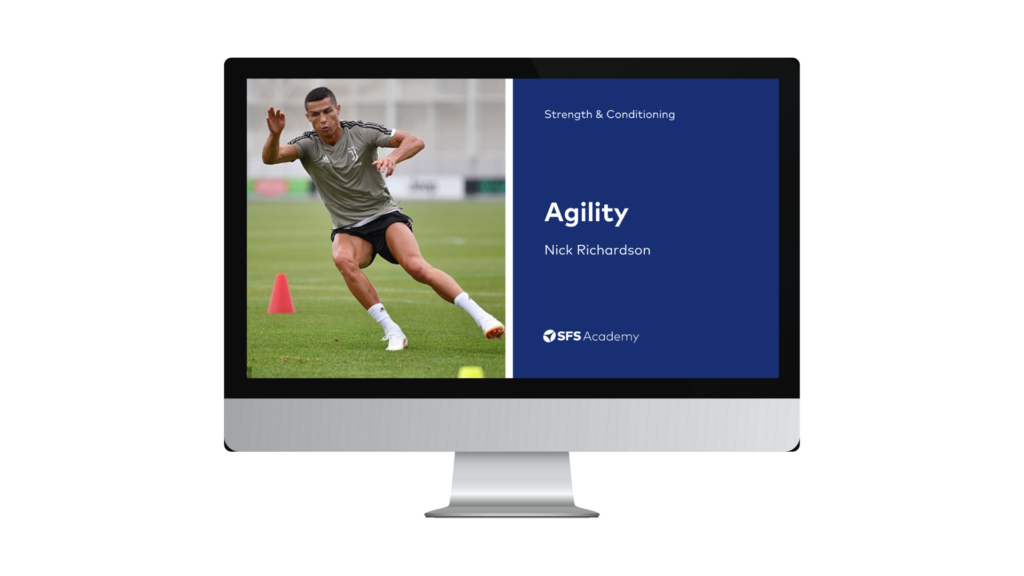This week in the world of sports science, here’s what happened…
- 25 years of BFR training: What does the research show?
- Aerobic and bodyweight BFR training: a systematic review
- Recent meta-analysis findings further solidify BFR training
25 years of BFR training: What does the research show?
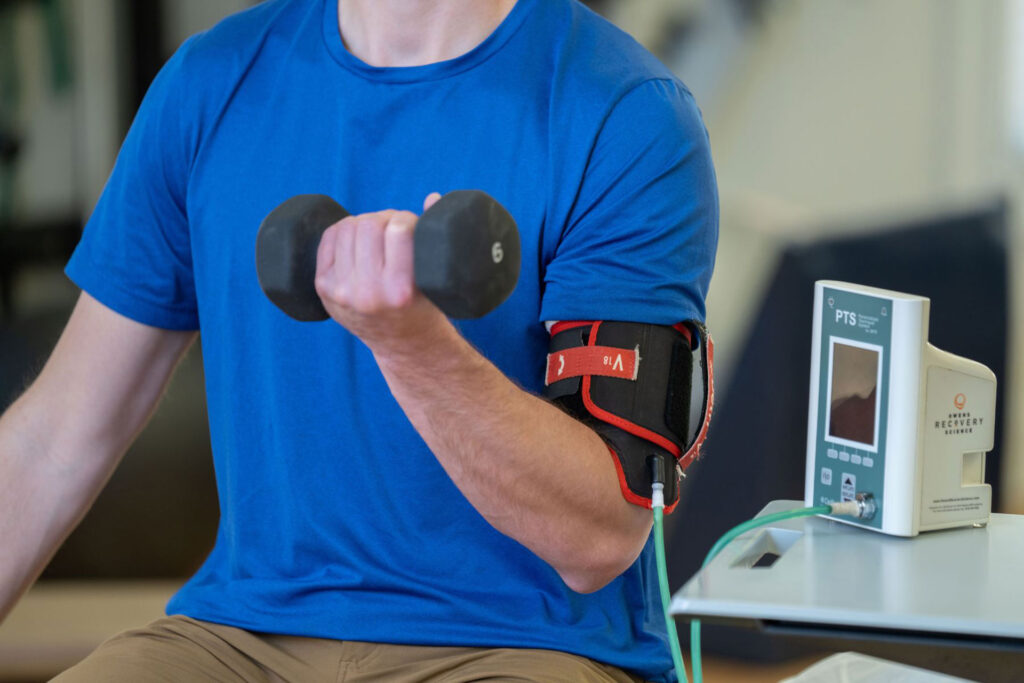
Over the past 25 years, Blood Flow Restriction Training (BFR) has experienced a significant increase in popularity as a training modality. A recent study provided a comprehensive analysis of BFR training over this period, detailing both established knowledge and areas requiring further investigation, as well as future directions for this training method. Although access to the complete study is somewhat limited online, renowned Athletic Trainer, Scott Armistead graciously shared it in a LinkedIn post and offered an insightful summary of the study’s key findings.
Armistead identified several critical points from the study, including the fact that low-load BFR training yields hypertrophic gains comparable to those achieved through high-load training. Furthermore, BFR training can be effectively utilised in post-ACL surgery rehabilitation to mitigate muscle loss. BFR training has also been shown to enhance blood flow, increase bone health and reduce pain sensitivity. These findings indicate that BFR training is increasingly relevant in both gym and clinical settings, particularly for injured athletes undergoing rehabilitation or those seeking a training stimulus without the associated fatigue of high-load training.
Future research opportunities include examining the differences in male and female responses to BFR training and exploring BFR’s integration with high-load training protocols. Nonetheless, both Armistead’s post and the study itself underscore that BFR has firmly established itself as a valuable training modality.
Aerobic and bodyweight BFR training: a systematic review
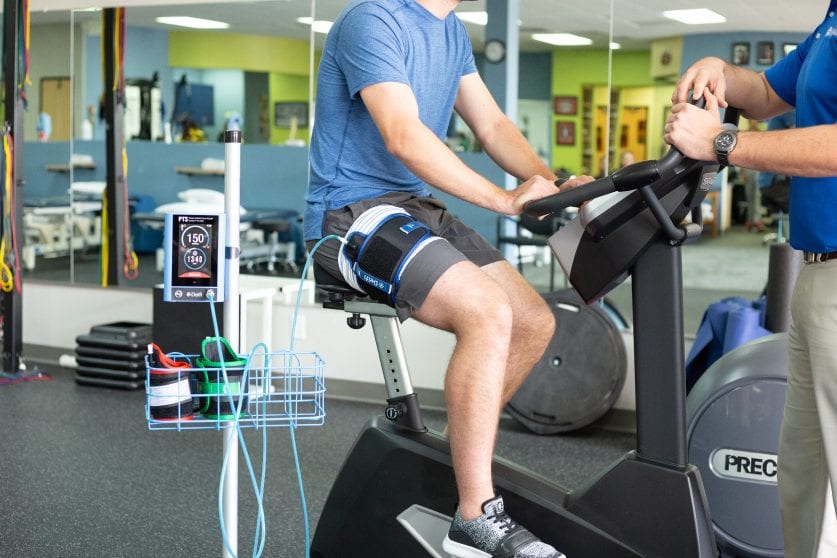
Sticking with our BFR training theme, there was a recent systematic review that examined the chronic adaptations associated with BFR in both aerobic and bodyweight resistance training, analysing 33 studies that compared aerobic and bodyweight BFR training to equivalent intensity non-BFR training.
The findings of this review are promising; BFR aerobic training demonstrated significant improvements in aerobic capacity, muscle strength, and muscle hypertrophy compared to traditional non-BFR aerobic training. Similarly, bodyweight BFR training was shown to significantly enhance muscle hypertrophy and strength when compared to non-BFR bodyweight training.
While many athletes will seek advanced training methods beyond basic bodyweight exercises, the findings from this systematic review suggest that BFR can be a valuable supplementary training tool. This is especially true during periods of limited access to traditional resistance training equipment or in rehabilitation scenarios. Incorporating BFR training can help maintain and even improve performance levels during these times.
Recent meta-analysis findings further solidify BFR training
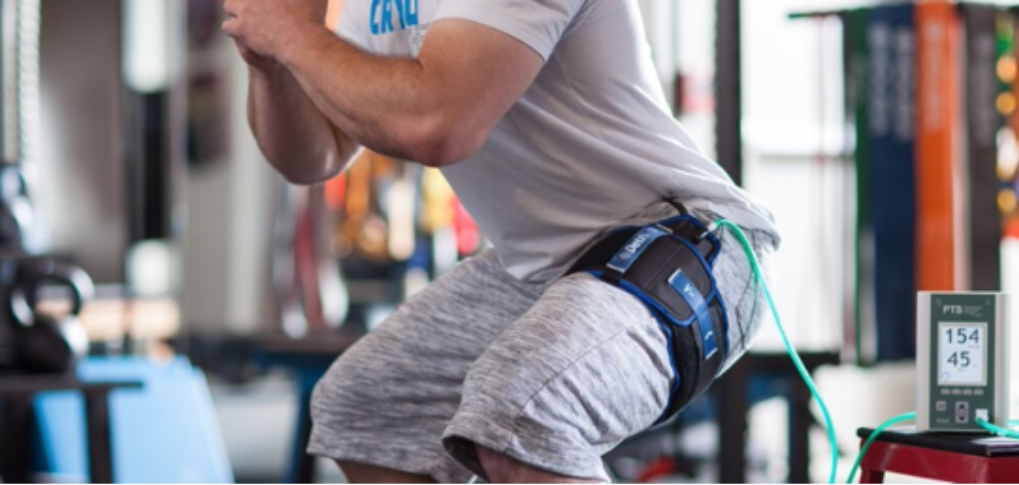
Furthermore, in the past month, three significant meta-analyses examining BFR training have also been published. The first meta-analysis focused on the effects of BFR training on upper body extremities, evaluating data from 17 studies. The findings indicated that BFR training can have substantial benefits in enhancing muscle strength, muscle hypertrophy, and muscle endurance in upper extremities across a diverse range of populations, from clinical to athletic cohorts.
Similarly, the second meta-analysis explored the impact of BFR training on upper body strength, incorporating data from 32 studies. The results demonstrated that BFR training significantly enhances bench press strength compared to conventional resistance training. Notably, the researchers recommended that BFR training using 40% to 70% of one-repetition maximum (1RM) and at 60% of arterial occlusion pressure (AOP) is optimal for achieving these benefits.
The third meta-analysis examined the effects of BFR training on knee osteoarthritis pain and muscle strength, assessing ten studies. The conclusions drawn from this analysis indicated that BFR training may be more effective than traditional resistance training in alleviating pain and improving quadricep muscle strength in patients suffering from knee osteoarthritis.
These recent meta-analyses further highlight the effectiveness of BFR training in both clinical and athletic environments, applicable to both upper and lower body extremities.
This week’s SFS Weekly demonstrates that BFR training is currently a trending topic in sports science! If you’re interested in learning more about BFR training, be sure to check out our excellent course: “Blood Flow Restriction Training” and podcast episodes: “Blood Flow Restriction Rockets Recovery” and “Is Blood Flow Restriction The Most Underused Weapon In Elite Performance?”
From us this week:
>> New course: Foundations of Sports Nutrition
>> New podcast: The Team That Changed Diabetes in Professional Sports Forever
>> New infographic: Peak Game Demands
>> New article: Hydrotherapy
Access to a growing library of sports science courses
SFS Academy is an all-access membership to premium sports science education.
With SFS Academy, you’ll learn from some of the best coaches around the world as they teach you how to apply the latest research and practice with your athletes.
